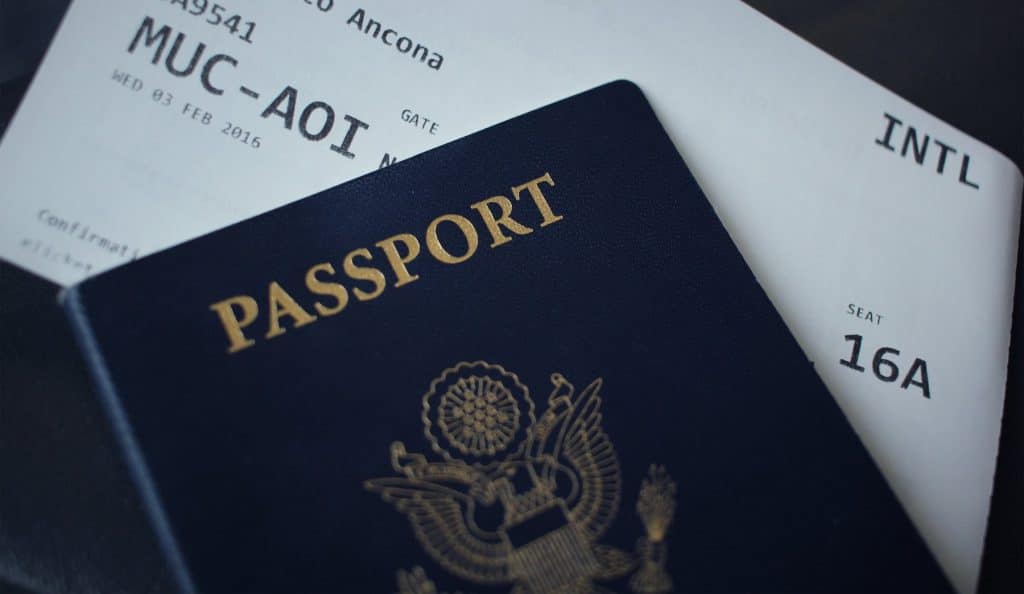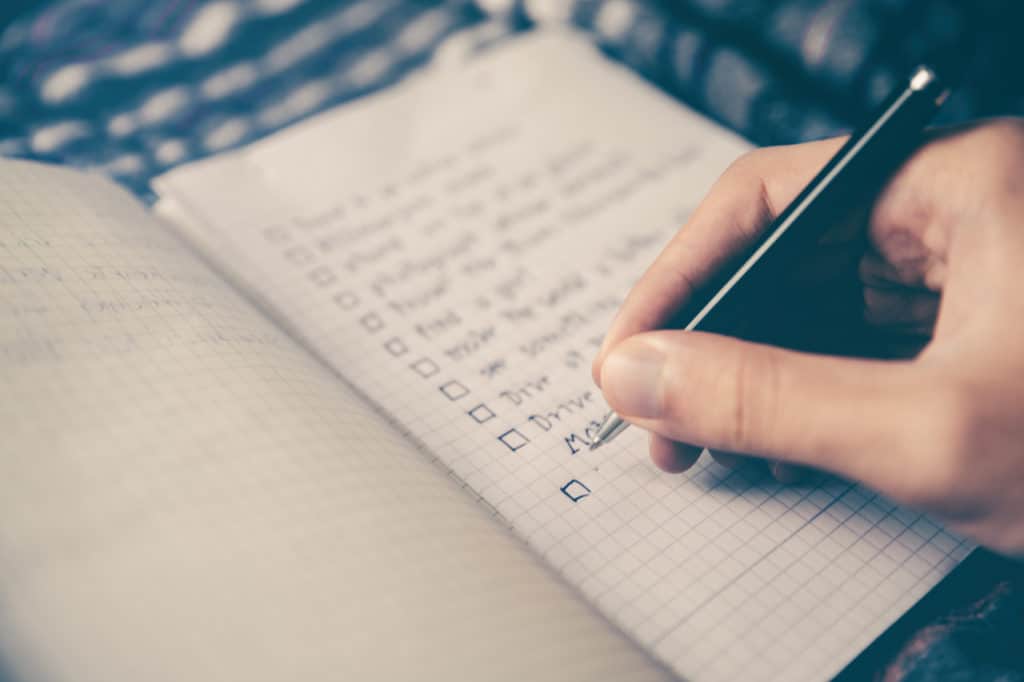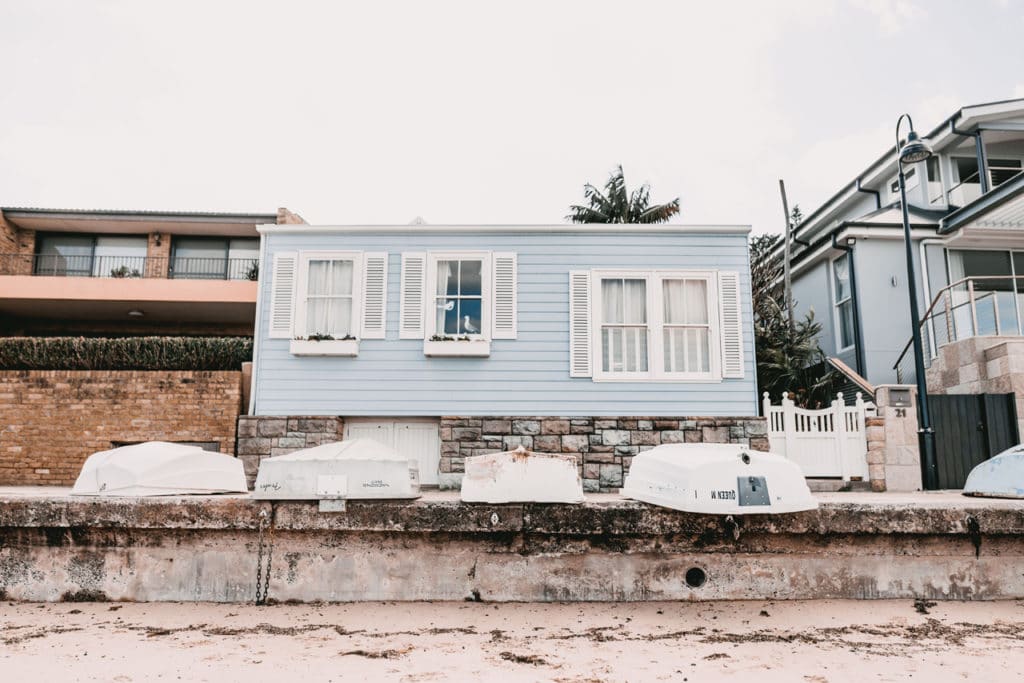Moving to Australia is a dream for many of us, but the way to get there can sometimes be long and challenging! Remember that you get a fantastic quality of life, which is worth every challenge. According to statistics from the Australian Bureau of Statistics, England (980,400) continued to be the largest group of overseas-born living in Australia, accounting for 3.8% of Australia’s total population. In this article, we share useful information, which will come in handy if you want to settle in Australia.
Table of Contents
How to migrate to Australia, visas options
There are several ways to migrate to Australia, but none of them are easy. Most expats go through different visas before getting their permanent residency. The most popular visa for people under the age of 31 or 35 depending on your nationality, is the Working Holiday Visa, which allows them to work and travel in Australia for up to 3 years. After that, however, you will need to get work permit to stay in Australia.
Migrate through work
If you find a job in Australia that offers you a visa, you will generally be sponsored. So here are the options available to you if you want to move to Australia professionally:
TSS Visa (subclass 482)
With the Temporary Skill Shortage Visa, your employer gives you the opportunity to stay in Australia while you work for the company. It is a temporary visa for 2 or 4 years. You must have at least two years of work experience in the area you want to be sponsored in. The profession must also be listed in one of the two STSOL or MLTSSL.
Read also : Visa TSS – New sponsorship visa in Australia
Employer Nomination Scheme (subclasses 186 and 187)
This visa is often used after the TSS visa. It is valid for 5 years and can be extended. If you have not worked in Australia yet, you have to be sponsored by a company, have your degree and certificates recognised and have at least 3 years of work experience in your profession.
Skilled Nominated Visa (Visa 190)
This visa complies with the 189 visa, except that you are sponsored by an Australian state or territory. This happens when there are not enough skilled workers in a particular sector. The occupations concerned are listed on the Short Term Skilled Occupation List (STSOL). To apply for this visa, you must have lived for at least 2 years in the state you want to be sponsored in. You must be under the age of 45 when invited by your sponsoring state/territory. You will have to obtain at least 65 points to obtain this visa.
Skilled Independent Visa (Visa 189)
This visa is an independent visa, meaning that neither a company nor an Australian state sponsors you. It is valid for 5 years and can be extended. Your profession must be listed in the MLTSSL (“Medium and Long-Term Strategic Skills List”), which lists all the professions that need labour in Australia. The approval of the visa 189 is based on a points test (you have to get at least 65 points). To apply, you must be under 45 years old.
Go on a partner visa
To apply for the Partner visa (Visa 820 or 309), you must be in a genuine and continuing relationship with an Australian citizen, permanent resident, or eligible New Zealand citizen. The relationship can be a marriage or a de facto partnership, including same-sex relationships.
Do a Working Holiday Visa (subclasses 417 & 462)
The Working Holiday Visa remains the main gateway for people under 31 or 35 (depending on your nationality). It allows to work and travel for 1 to 3 years in the country. But then you have to be able to obtain a work permit to stay and apply for permanent residency. It can nevertheless be a good option if your profession or profile does not fit into the lists provided by the Australian government for sponsors.
Study in Australia
The student visa (subclass 500) is accessible to everyone (regardless of your age). It will allow you to work while studying in Australia. The number of hours you can work is limited (48 hours per fortnight). Some courses (several years of university) may then offer you the possibility of obtaining a work visa allowing you to stay in the country. In any case, a student visa can greatly help you find a job in Australia. Your employer will know that you have a good level of English, that you can write well, etc.

Relocating checklist – prepare your move
Before you leave home, you need to draw up a to-do list. Here are the most important things to consider before moving here:
- Organise moving (container / sell your furniture etc.)
- Book flight tickets
- Deregister from administrative offices (civil service, health insurance, etc.).
- Find accommodation in Australia
- Health matters (take out suitable insurance, get a health check with your GP)
- Cancel your contracts (telephone, internet, electricity, etc.)

Working in Australia
To work legally in Australia, you need a work permit. You can get it either if you are sponsored by a company or if you have a partner visa, permanent residency or a work and holiday visa. Students are also allowed to work while studying in Australia.
Job market
Australia is often portrayed as the Eldorado of work, but in reality it is not that easy to get a job. Nevertheless, the country’s unemployment rate is still relatively low. The unemployment rate was 3.5% (January 2024). Some regions are far more affected by unemployment than others.
Every year, Australian immigration publishes a list of sectors with labour shortages. The first thing to do is to check that your occupation is on the list. Bear in mind that Australian companies are more likely to choose a local candidate (citizen or permanent resident) than a foreigner. The covid pandemic has created a major labour shortage in practically all sectors. It therefore seems a little easier to immigrate to Australia at the moment.
Recruiting Sectors
All sectors recruit to varying degrees throughout the year. The sectors that recruit differ according to the country’s cities and regions. For administrative or institutional jobs, you should aim for the capital, Canberra. If you’re looking for jobs in the mining sector (labour, professional workers, engineers, etc.), Perth is undoubtedly the right choice. Sydney and Melbourne, Australia’s two largest cities, are home to the head offices of major Australian and foreign companies. There are plenty of jobs in finance, construction, catering, education, IT and law.
With the pandemic and its labor shortages, Australia lacks chefs, accountants, medical staff and many other professions all over the country.

Working conditions
Working in Australia is probably different compared to your home country. Depending on where you are from, the main difference might be that the business language in Australia is obviously English. Other differences:
- Flexibility (employment, termination)
- Social protection
- More opportunities: Unemployment rate (3.5% January 2024)
- Annual leave: 20 paid work days + 10 public holidays.
- Relaxed but professional working atmosphere.
- Relationship between hierarchy levels friendly and always respectful.
- Maternity leave: up to 18 weeks minimum wage. You will be entitled to maternity leave after about one year of permanent employment.
- Sick leave: 10 paid days per year.
Salaries
Salaries in Australia are overall higher than in many other countries, but the cost of living is also higher. Average annual salary: 68,000 AUD / year.
However, everything depends on the industry and the type of work. To give you an idea, here are the minimum wages by profession:
| Profession | Annual salary (in AUD) |
|---|---|
| School teacher | 70 000$ – 160 000$ |
| Accountant | 120 000$ – 175 000$ |
| Registered Nurse | 62 000$ – 87 000$ |
| Banking (personal banker) | 60 000$ – 77 000$ |
| Marketing coordinator | 63 000$ – 93 000$ |
| Graphic Designer | 70 000$ – 125 000$ |
| Web designer | 80 000$ – 140 000$ |
| Data scientist | 101 000$ – 156 000$ |
| Business Analyst | 85 000$ – 130 000$ |
| IT Project manager | 115 000$ – 168 000$ |
| Architect junior (2-5 years exp) | 65 000$ – 85 000$ |
| Construction project manager | 160 000$ – 250 000$ |
| Construction (leading hand) | 70 000$ – 145 000$ |
| Design Engineer | 90 000$ – 140 000$ |
| Real Estate Agent | 55 000$ – 115 000$ |
| Production Manager | 90 000$ – 130 000$ |
Source : Hays Salary Guide 2022/2023
Minimum wage in Australia: 23.23 AUD / hour (July 2023) – about 882.80 AUD / week.

Housing in Australia
Apartment prices are quite high in Australia, especially in big cities like Sydney and Melbourne. With the pandemic and the development of remote work, rents have also increased significantly in some parts of the country (Gold Coast or Sunshine Coast in Queensland). Australians are struggling to find accommodation and some find themselves camping in caravan parks, due to a lack of available accommodation or too high rents.
Renting an apartment in Australia
Renting an apartment in Australia is easy. Here, you pay for rent weekly or fortnightly. In general, the conditions to rent an apartment are as follows:
- Sufficient income (salary> rent)
- Valid visa for the rental period
- Lease for at least 6 months
- Bond of 2 weeks rent + 2 weeks rent in advance
Beware, pets are not always allowed. Landlords can decide whether or not they accept pets. Inquire beforehand, if your little mate is welcome. If you have one, look for “pet-friendly” properties. If you have a pet, you will need to provide a pet information sheet (photo, age, sterilised, behaviour, etc).
Accommodation provided by your employer
A good option, given the cost of renting accommodation in Australia, is to be provided with accommodation by your employer. This is possible in many areas. It won’t be in the big cities, but more in rural areas. For example, if you work on a farm, your employer will allow you to park your van on his property or will make premises available to his employees. If you work in the mines, you will generally be accommodated on site. If you work in a hotel or motel, you’ll also be provided with a room. In general, you’ll have to pay a small rent per week, but it’s also possible that the accommodation will be free! A good way to save money!
Buying a property in Australia
After the global economic crisis, the real estate market in Australia has exploded in recent years. The Covid pandemic has amplified this problem in some parts of the country. Indeed, prices today are increasingly disconnected from economic realities. In Sydney, for example, purchase prices are higher than anywhere else in Australia. Many Australians or expatriates choose to buy 50 km or more from the city to get better prices. Know however, that the experts predict a fairly substantial decline in real estate in the next two years.
If you want to invest in real estate as a foreigner in Australia, you have to meet certain conditions. First, you must obtain approval from the Foreign Investment Review Board (FIRB). This costs $ 5,000 if the value of the property is less than 1 million. Once you find a property and you have got the permit, it is best to hire a lawyer who takes care of the administrative procedures. Make sure you have the approval from your bank before submitting an offer to purchase. When signing the contract, you must pay a deposit of 10% of the purchase value.
Permanent Residents don’t need an approval from the FIRB to buy real estate.
To take out a mortgage, you need to go to a bank. They will confirm the maximum amount you can borrow. You must have a personal contribution (deposit) of at least 15% of the price of the property. You probably get the best prices through a broker. In general, you get part of the loan at a fixed rate (for a period of time) and the rest at a variable interest rate.
Please beware that there are other costs you have to expect besides the price of the property. These include legal fees, property transfer fees, stamp duties, compulsory home insurance, mortgage fees, etc.

Cost of living & purchasing power
The cost of living in Australia is high. Sydney is the tenth most expensive city in the world. Since rents are particularly high in cities, people often share houses to cut costs. The public transport system is very good, which is also reflected in the price. Monthly tickets for buses and trains are, as in most other countries, cheaper than single tickets.
When buying food, some products are cheaper, while others are more expensive (cheese, alcohol, fruits and vegetables depending on the season) than in other countries.
Here are some examples:
– 1 liter of whole milk: 1.60 AUD
– 12 eggs: 5 AUD
– 500 g of pasta – 1.80 AUD
– 150 g of glass of instant coffee – 10 AUD
– 400 g jar of Nutella – 7 AUD
– 500g grated cheese – 9.50 AUD
– Cheese: about 10 AUD (175g)
– Bread: about 4 AUD (supermarket)
– Beer: about 20 AUD (six pack)
– Spirits: about 50 AUD (1L whiskey)
But be aware that wages are much higher compared to other countries, so you can live well, even if the cost of living is high. Purchasing power in Australia is 23% higher than in some countries in Europe, despite the higher cost of living. The country has been experiencing high inflation since 2022, with food prices rising steadily.
Further information: Cost of living in Australia

Healthcare System in Australia
In Australia, the healthcare system is called Medicare. It is similar to the NHS. It is the Commonwealth Government’s universal health insurance scheme, founded in 1984.
This Australian health system offers its beneficiaries free treatment as a public patient in public hospitals, as well as free or partially subsidised treatment for certain optometry, dental care and psychological services.
Some countries, such as the UK, Switzerland, Italy, have signed reciprocal health agreements with Australia. Their nationals can therefore partially benefit from Medicare. Beware, however, that the coverage offered is much less than that enjoyed by Australians themselves, only essential care will be covered.
Australian Lifestyle
Lifestyle
Australia has an incredible climate and much of daily life is spent outdoors. There is a strong sporting culture here and from an early age, Australian children try their hand at many sports. Practically all Australians play a sport every day. It is quite normal to see someone jogging or surfing at 6am before going to work.
Australians are very friendly and will always ask you how you are when they say hello… It’s part of the culture! They will always be ready to help you, guide you or simply be happy to share a beer with you, even if you just met them!
To sum up, the quality of life in Australia is remarkable with a stable economic environment, good infrastructure, an excellent education system, a very safe country to visit.
Australian people
Australians are renowned for their warm and welcoming personalities, as well as their relaxed lifestyle and zest for life. You will quickly realise that Australians are generally very friendly and sociable. They are open to meeting new people and establishing friendly relationships. There is a strong spirit of mutual aid in the country. Australians tend to support each other and lend a helping hand when someone is in need.
Australians are very friendly and will always ask how you are when they say hello… It’s part of the culture! They’ll always be ready to help you, guide you or simply be happy to share a beer with you, even if you’ve just met them!
FAQ – Living in Australia
The majority of expatriates in Australia choose to settle in the country’s major cities. This can make it easier to find a job, as these major cities are multicultural and accustomed to foreign workers. Some of the most pleasant cities to live in include Sydney with its superb bay, Melbourne with its European flair, Brisbane with its annual sunshine, Perth and Adelaide.
Before you can migrate, you will need a valid visa. Temporary visas are accessible to everyone and easy to obtain. More permanent visas are a little more complicated. Many young people choose to leave on a temporary or student visa at first. Once you’re here, you can move on to other visas (particularly TSS). Going to Australia for a few months or years is accessible to everyone, but staying for the long term is a little more difficult, but not impossible!
In Australia, your daily budget will vary according to many factors. The cost of living is higher than in France, but purchasing power is also much higher. In any case, for a simple trip to Australia, plan on a budget of at least $100 per day per person. The cost of living in Australia is high in the major cities and more affordable in rural areas.
The first step is to prepare yourself as much as possible. Find the visa that suits your situation, find out about the cities and places that interest you in the country. Then plan your departure from Europe. Once you’re in Australia, if you have a temporary visa, set yourself some objectives (renewing your WHV, finding a sponsor, taking language courses, etc.). As you can see, Australia gives a chance to everyone who gives themselves the means to do so!
Updated 12/02/2024

























